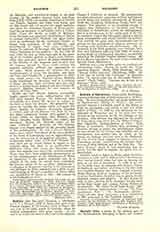

Baldwin (also BAUDOIN), FRANCIS, a celebrated jurist, b. January 1, 1520 at Arras, then part of the German Empire; d. October 24, 1573, at Paris. He was sent in his early youth to Louvain, where he studied jurisprudence with great success. At the end of his studies he came to the court of the Emperor Charles V (1519-56) at Brussels. He subsequently travelled extensively, appearing at Paris and Geneva several times and teaching successively at Bourges (1549-56), Strasburg, Heidelberg, Douai, Paris, and Angers. The assertion of his sevenfold change of religion from Catholicism to Calvinism and from Calvinism to Catholicism cannot be substantiated. But it is certain that, in the earlier part of his life, he exhibited toward the Calvinistic system a friendliness incompatible with sound Catholic convictions. This attitude for some time recommended him to princes for the settlement of religious questions interesting both Catholics and Protestants. His attachment to the Faith gradually grew stronger, however, and beginning with the year 1560, he made a serious study of ecclesiastical questions, successful) defending the Catholic religion against Calvin. He died a devout Catholic in the arms of the celebrated Spanish Jesuit, Maldonatus.
Baldwin was a very prolific writer on juridical and ecclesiastical topics. Among his works are: “Constantinus Magnus” (Basle, 1556; Strasburg, 1612); “Minucii Felicis Octavius” (Heidelberg, 1560). He is the first to ascribe the “Octavius” to Minucius Felix; “S. Optati Libri Sex de Schismate Donatistarum” (Paris, 1563); “Discours sur le fait de la Reforme” (Paris, 1564).
N. A. WEBER

